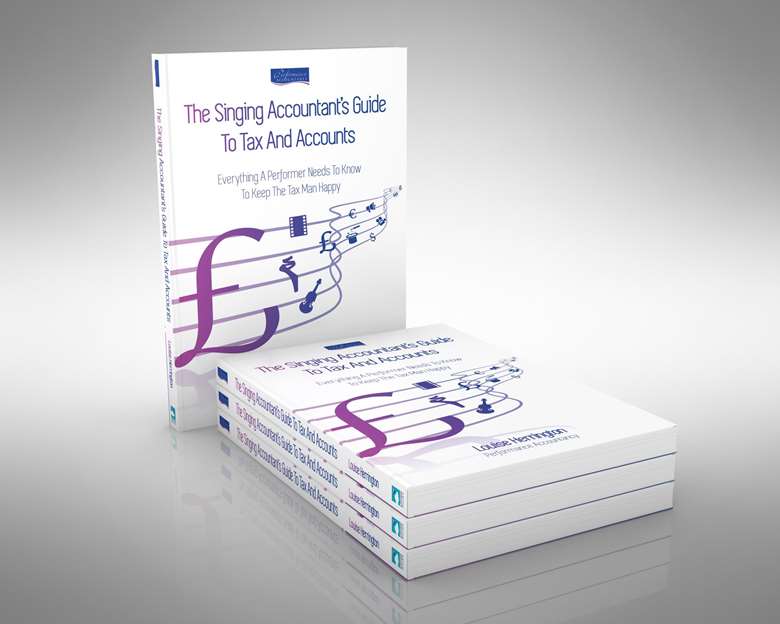The singing accountant: don't miss out on 'Overlap Relief'
Sponsored
Louise Herrington, classically trained opera singer and professionally qualified accountant
Wednesday, September 25, 2024
Sponsored content: 'Overlap relief' could bring major tax relief worth thousands to performers – but there's an approaching deadline, explains CM's Singing Accountant

A former opera singer who now specialises in accountancy services for the performing arts is advising performers without professional representation to keep an eye on the post as HMRC begins to roll out what is known as 'Basis Period Reform'.
Louise Herrington, aka 'The Singing Accountant' who oversees Performance Accountancy says that for some performers there is a chance of welcome news – but only if they act fast to obtain what is known as 'Overlap Relief'.
‘I don’t know anyone who opens those brown envelopes from HMRC with anything other than a creeping sense of dread,’ says Louise ‘but there is some potential good news to be heard along with some potential challenges – it was ever thus with tax.
'HMRC has been writing to people ever since January about a very dry subject called “Basis Period Reform”. A few years back, the boffins at the treasury decided that all self-employed or sole traders must be doing their accounts and their tax return to the fiscal year-end date.
That's either 31 March or 1-5 April. Bottom line, they have to report on their tax return 12 months or more to that date. So if your year-end was the 30 April 2022, for the tax year reporting of 2023-2024, you’ll need to report your year to the 30 April 2023, plus all your accounts from the 1 May 2023 to the 31 March 2024 (or 5 April 2024).
‘Here’s the bad news. That could in theory give you 23 months worth of accounting in one year and 23 months worth of profit, and that gives you 23 months worth of taxes. Not ideal! Now, there is a chance that if you had an accountant when you first started up, they potentially would’ve set you on a different year-end period than the 5 April or the 31 March. That meant that you could delay paying tax. However, fast-forward to the first period that you paid tax and you would’ve actually paid tax TWICE on the same income.
‘So here’s the good news. If that is the case, that amount is sitting in the HMRC vault with your name on it. It is called overlap relief and you can use that relief to offset against a longer than 12 month period.’
‘I don’t know anyone who opens those brown envelopes from HMRC with anything other than a creeping sense of dread – but there is some potential good news'
However, the opportunity to discover whether you can obtain overlap relief is shrinking everyday and with backlogs dogging HMRC for months now, Louise is urging anyone who receives one of these letters to act immediately.
‘If your year-end is not 31 March or the 5 April, don’t wait until you start working on your Self Assessment in December and January to get this figure. Why? Well, Tax year 2023/2024 is the last year you can use it!
‘Plus, those delays at the tax office are not getting any shorter. If you don’t find this figure and put it on the tax return, then you’ll lose that relief, and you cannot bring it forward anymore.
‘Getting this relief is one of the only things that HMRC will use email for, unless you opt for post, and it is supposed to come in 15 to 30 days but don’t count on it. Mercifully, there is some guidance on the HMRC website, but in news that will shock absolutely nobody, it is not very clear.
‘There is apparently hundreds of thousands of money sitting with HMRC in the overlap relief area, but unless you claim it, HMRC will not tell you if you have an amount owing. So please, take a look ASAP and get cracking. Or speak to someone like me who can help you with this.’
What next?
Go back to your workings. Hopefully, you’ve still got them from the 1990s? See if there is anything on your tax return that kind of explains what it’s all about. Have a look on the HMRC website.
Now, when this first started to get introduced and we were told about it, it was during Covid.
What some accountants did then was crash the new period together and hopefully applied the overlap relief if they knew about it. It is still worth looking at old tax returns and seeing, did your accountant put you on a strange year-end, and now you’re on the 5 April? Fill out the form, if that is the case.
We are pulling together a guide on finding what your overlap relief is and how to work it out. But for this year, if you do find you’re in that situation and you’re not currently a client of ours, then we will try and work this out for you. In fact, come on board as a client for this one-off piece of work and then you can easily do your own tax return from 2024-2025 (unless you like us and want to stay!).